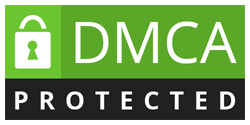Foundations?of?Insurance?and?Risk?Management?Needs?Analysis?Project
Foundations of Insurance and Risk Management Needs Analysis Project
You are a financial planning consultant. A client has approached you for advice on an insurance
program. The client?s existing insurance program is provided following the instructions for the
written report.
Written Report Instructions
Your assignment is to prepare a written report of 1,200 ? 2,000 word count for your client that:
? Analyzes the client household?s existing insurance and retirement program.
? Recommends changes that would remove unnecessary or inappropriate coverages and changes that
would add to or provide a more complete insurance program for your client?s household.
You may make additional assumptions beyond those already provided about your client to further fill
in the details of your client?s household situation. Provide any such assumptions or details at the
beginning of your report, and build your client?s program accordingly.
A complete insurance program includes an evaluation of all your client?s insurance needs and the
selection of coverages. A complete insurance program may include more than the coverages your
client already has. Several other coverages studied this semester may also be important.
One of the issues required to be addressed is the appropriate amount of life insurance for your client’s
household. Additional assumptions about the household?s financial goals may be necessary for this
analysis. To determine the amount of life insurance that fits your client’s needs, use either the needs
approach or the capital retention approach discussed in Chapter 11 in the section on the Amount of
Life Insurance to Own. Using any method other than the needs approach or capital retention
approach or allowing an insurance agent to do the calculations for you will lead to a lower than
passing grade on the project. Your report must contain a description of your analysis of this issue.
The program you recommend for your client will be graded on the basis of how well it fits the needs
of your client?s household. Your report needs to provide substantive recommendations for changes
in existing insurance coverages and insurance you advise your client to buy to cover gaps that exist
now. Your report is expected to have business appropriate grammar, verbiage, and formatting.
Submit your report on your project through D2L dropbox.
Client?s Household
Alex and Marty Smith are a married couple who live in Edmond, OK. Alex was 35 years old in
September and works as a coach and high school teacher at a local school. Alex earned $49,000
before taxes in 2014. Marty will be 34 years old in April and is a self-employed web designer and
marketing consultant with an office at home. Marty?s income fluctuates each year but earnings
before taxes in 2014 were $68,000 which was an average year. The Smiths have two children.
Olivia is 9 and Michael is 7.
The school district pays the premium for $50,000 in group term life insurance for Alex who has no
other life insurance. Marty has a $25,000 whole life insurance policy that was purchased at birth.
Last year the Smiths bought $30,000 whole life insurance policies on each of the children. They plan
to use these policies to also save for the children?s college.
The Smith?s 3 bedroom, 2 bath, house has 1,600 square feet of living space with an attached garage.
The house in west Edmond was newly built when they bought it 6 years ago for $145,000. The
balance on their 30-year mortgage is now $108,000 and they make a monthly payment of $1,267 to
their lender for the mortgage and property taxes. Monthly household expenses are on average about
$450 for utilities, $600 for food, $120 for insurance, and $300 for entertainment. Alex and Marty do
not keep close track of most of their expenses, but believe their household expenses for other items
such as clothing, personal care, child care, car maintenance and gas are about average.
Alex participates in a defined benefit retirement plan through the Oklahoma Teachers Retirement
System and is eligible for full retirement benefits at age 58. Marty does not have a formal retirement
plan but does set aside about $250 per month in an index mutual fund. The mutual fund was worth
$37,789 at the end of September. The Smiths carry average balance of $900 per month on credit
cards. They still owe $300 per month for student loans which will be paid in full in another 16
months. The Smith usually have about $2,000 in their checking account and maintain a savings
account balance of $8,000 for emergencies.
They have an unendorsed HO-3 policy with Coverage A limits of $120,000. The Smiths own a
motorcycle that they sometimes ride around town on weekends. Alex inherited an emerald necklace
and earrings, valued at $6,000, from a grandmother. Marty collects comic books and has a collection
valued at $9,000. The jewelry and the comic book collection are stored in the storm shelter accessed
from the garage.
Alex?s employer provides health insurance through a comprehensive major medical plan with a
$1,200 deductible and an 80-20 cost sharing provision and a $5,000 out of pocket maximum. The
plan is noncontributory so the employer pays the entire premium to cover Alex. Spouses and
children can be added to the plan at the employee?s option with the employee paying half of the
premium (the employer pays the other half). All of the Smiths are in good health and they thought
their share ($360 per month) of the premiums was too expensive so they chose not to enroll Marty,
Olivia, and Michael in Alex?s health insurance plan. Instead, they bought an AFLAC cancer policy
for $50 per month on Marty and an accident-only health insurance policy for $45 per month on the
children. Marty?s father died at age 46 of cancer.
The Smiths own a 2013 Toyota Camry with 26,000 miles and a 2006 Ford Taurus with 98,000 miles.
They pay $345 per month on a loan for the Camry that will be paid off in June of 2017. The Smiths
have a Personal Automobile Policy with full coverage on both cars. The Part A limits are
$25,000/$50,000/$25,000. The same limits apply to Part C. Part B limits are $5,000 per person.
The policy has a $250 deductible for both Collision and Other-Than-Collision in Part D for both cars.
There is a $50 per disablement towing and labor provision. Marty and Alex both have clean driving
records.




